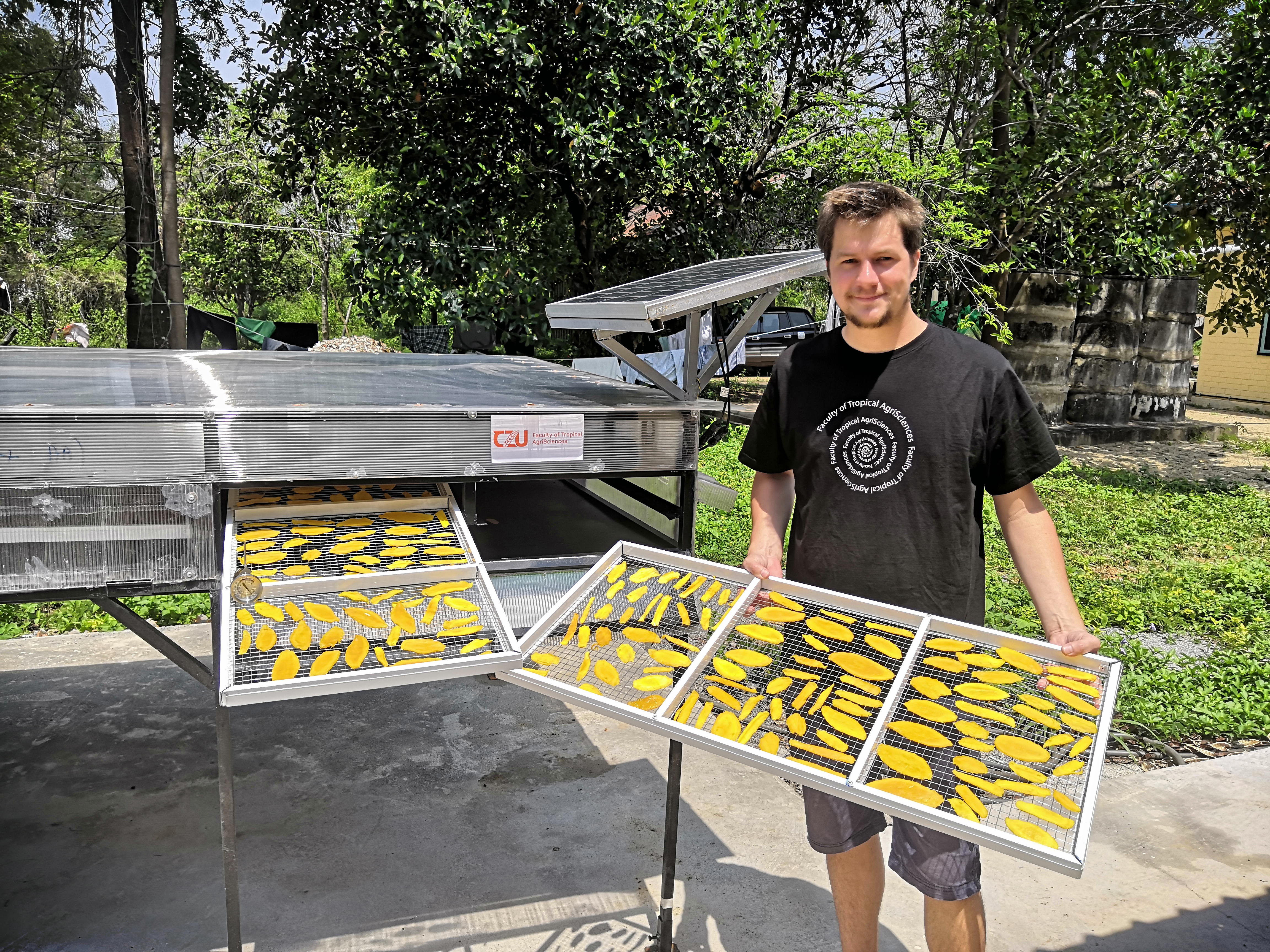The mango harvest season is in full swing in Cambodia. However, due to lack of knowledge and inadequate practices, there are huge post-harvest losses of this crop rich not only in vitamins (A, E, B2, B, C, B1, B3,...) but also in minerals (Manganese, Calcium, Selenium, Potassium, Magnesium, Phosphorus,...).
Mangoes are up to 85% water, so their long-term storage is difficult and requires low temperatures, which farmers in rural areas without electricity are unable to provide. Since the dry season also begins during the mango harvesting season, everything favours one of the oldest food processing methods, namely drying. Although this is practised by the locals, the quality of the resulting products is not optimal, not least because the products are dried directly in the sun, without any protection against micro-organisms, pests, dirt, and other external influences, including rain or UV radiation, which degrade the quality of the product.
Thanks to solar dryers, farmers can avoid these problems and obtain a better-quality product suitable for the local market as well as for export. Fresh fruit has almost zero value here at harvest time, so it is important to preserve this value by processing, whether by drying, canning or fermentation.
All the above-mentioned methods of fruit processing were presented by Jan Staš (FTA employee, food processing expert) during a 10-day training for local farmers and future trainers in cooperation with colleagues from Mendel University in Brno (Petr Němec) and Holistic Solutions (Jaromír Novák) within the project "iAGRO - Improving the agricultural value chain in Kampong Speu Province, Cambodia" implemented by Diakonia CCE and supported by the Czech Development Agency.
During these trainings, the trainees, who are also representatives of individual agricultural cooperatives, gained theoretical and practical knowledge in many areas: food processing, heat preservation, canning, fermentation, browning of fruits, chemical preservatives, post-harvest changes in fruits, use of sensory analysis for product quality assessment and others. The greatest emphasis was placed on processing by drying, in four types of solar dryers, including the "Double-pass" forced-air dryer previously designed by Prof. Ing. Jan Banout, Ph.D. and his team.
Despite occasional weather fluctuations (tropical storms), several hundred kilograms of fruit were processed, not only by drying but also by canning and fermentation. The trainees learned the methods and then had the opportunity to invent and develop their own products (e.g. without using sugar or preservatives). They are now ready to pass on the knowledge they have gained to other farmers during the training sessions that will follow.
And what did it look like during these trainings, which were attended also by representatives of the Embassy of the Czech Republic in Phnom Penh and FTA graduate Stanislav Flekač (Project Manager for Southeast Asia, Diakonia)? Take a look at the gallery below (Photos: Jan Staš, Jaromír Novák, Heom Phal).
Jan Staš
PS: If anyone would like to taste the dried mangoes, feel free to contact me via stas@ftz.czu.cz


